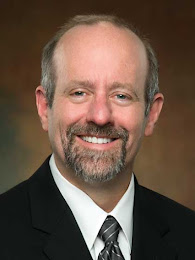“While I’d been treating Eddie for only a few months," Anderson writes, "I knew a lot about him. He had a reputation in the community for being a bad man. A heavy smoker, he’d abused his own body as well as abusing others. Whenever I saw his name on the appointment sheet, I dreaded his visit. He had a horrible temper, and his personality was as aggressive as his cancer. He’d physically and sexually abused his wife and his kids in the past. He was a troublemaker who, after drinking too much, got into fights, sometimes with his fists and sometimes with a knife.
“I don’t write this lightly, but Eddie was truly evil. He thrived on being mean and hurting others. I knew this first hand because I had been treating his victims for years.
“But I also believed deathbed conversions were possible. While I don’t have the ability to look into another man’s heart or soul and know where his relationship stands with God, I believed that no matter where he was spiritually, redemption was available. God had rescued me from the godless life I’d once been living, and I believed he could, and did, rescue others—even up until the moment of death.
“Every day for the next two weeks, I’d stop by Eddie’s room and try to talk to him about God. His response was always the same: Shut up, and take care of my cancer. And if you can’t take care of my cancer, then just shut up and give me pain medicine.
“I was sitting at Eddie’s bedside, praying for him as he made the transition from this world to the next. Eddie began to stare off into the distance. But it wasn’t like the gaze of glory I’d seen with other patients. Eddie’s stare was different. He seemed to be staring off into a great chasm. His eyes grew wide, he was restless, maybe even anxious, and I detected a look of fear on his face.
“The Cheyne-Stokes respiration signaled that death was near, and I listened to him as he struggled to take each breath. Unlike many of the believers I’d witnessed who had crossed silently and peacefully, Eddie seemed to be struggling. He made grunting noises and clung to each breath as if it were his last. Eventually, his breathing slowed, and the grunts became less frequent. When his last breath finally came, it wasn’t the same peaceful exhale that I’d become so familiar with in my other dying patients. Eddie fought to take a final breath, and then his pulse and heart stopped. His last breath was a grunt.
“Suddenly, I felt some type of dark cloud present in the room. The lights grew dimmer, and the temperature plummeted. The room was freezing cold as though the temperature had instantly dropped 100 degrees. The warmth I’d come to expect when heaven’s door opened seemed to have been replaced by the opening of a liquid nitrogen canister. The room appeared dark and shadowy, as if a black abyss was swallowing it. That’s when I smelled sulfur and diesel. The air felt heavy, and it got harder to breathe. I remembered the same smell after the Alday murders. Though I had no rational reason to feel this way, I was afraid I would get trapped and be unable to leave. I wanted to get out as fast as I could. Evil had entered the room.
“I quickly made the death pronouncement and left. I hurried down the hall to the sink. I turned the water on as hot as it would go. While I waited for it to heat up, I lathered my hands. Then I frantically scrubbed my forearms. As soon as the water was hot, I held my hands and arms under the steamy faucet until they turned red. I wanted to wash the darkness off me. Lord, please keep me from that evil in the future. Thank you for rescuing me from that. Because if you hadn’t come after me, that’s where I’d be too.”
Reggie Anderson, Appointments with Heaven: The True Story of a Country Doctor’s Healing Encounters with the Hereafter (Tyndale, 2013), 186-190.











